'It comes from the underground republic of dives and disobedience'
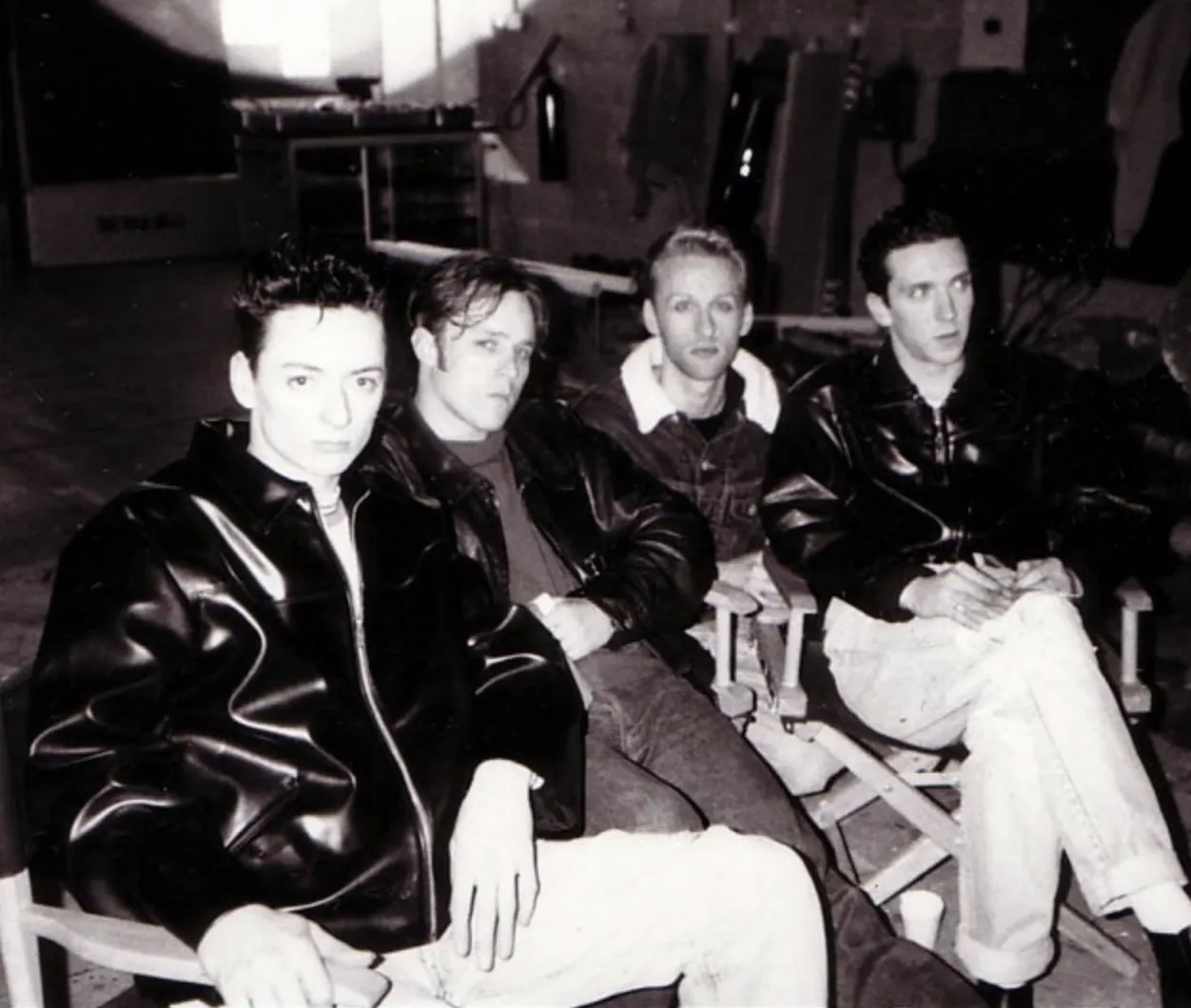
Jeff Young on Paul Simpson's 'revolutionary spirit'
The best songs contain secret messages, coded layers of meaning transmitted to the listener. Paul Simpson has heard these secret transmissions and I suspect this is one of the reasons he became a musician, an artist, a writer. He hears it in ‘Kites’ by Simon Dupree & The Big Sound when he is a boy and he doesn’t quite understand it but that adds to its mystique.
In the early 1980s, Paul Simpson wrote one of those songs: a work of urgent, romantic yearning like a call to arms for a secret underground. The song is called ‘The Revolutionary Spirit’, and when I bought the 12” single on the day it was released I took it home and played it to death. It was as if Paul and his band The Wild Swans had made the record for me, and within its grooves there was secret information.
You lean in to the speaker on your stereo and you try and translate the atmosphere into meaning, into something you can explain to your friends. You instinctively know that this record is as close as you can get — sonically — to literature. It’s the musical equivalent to the City Lights and Olympia Press books on your bedroom shelves and it has the effect on you that ‘Marquee Moon’ had in 1977 when you took it home that February morning and played it on repeat. You don’t understand it but it resonates. It contains a secret message and it’s directed at you, and you alone.
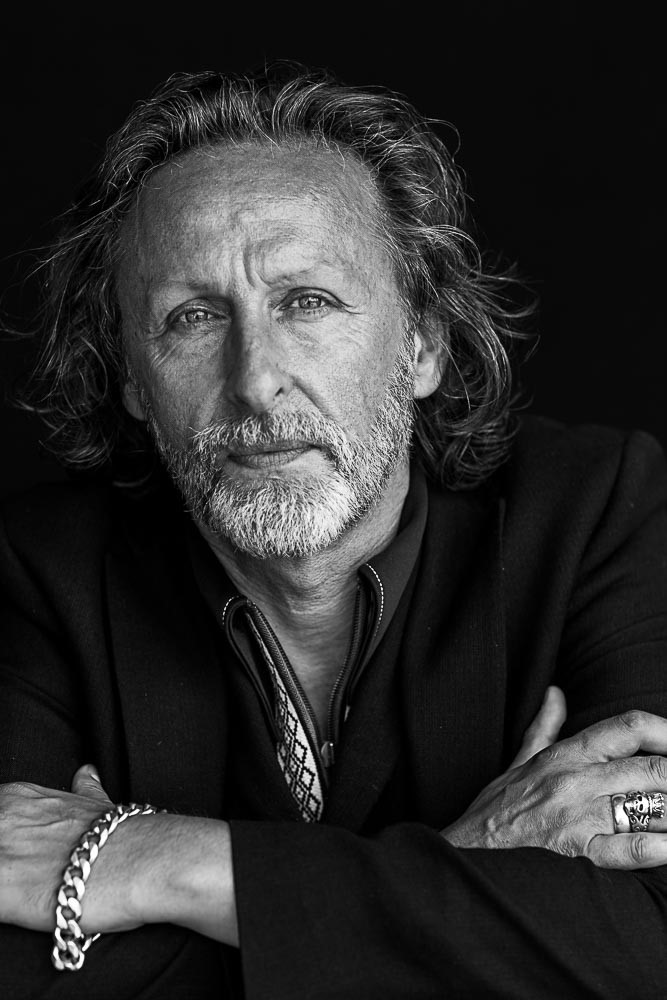
Shortly after ‘The Revolutionary Spirit’ was released I went to live in Amsterdam. Sometimes I’d be sitting outside a café and Paul Simpson would walk past, always dressed immaculately, usually with a beautiful woman by his side. We went to the same school — I was a year older — and even though I didn’t know him at the time I was always aware of his presence. He just stood out.
We didn’t know each other during the Eric’s years either, that time when the club was the city’s post-punk crucible, but I’d spot him at a Warsaw gig or the night The Pop Group supported Pere Ubu, always a startling presence in a monochrome crowd. And now, on the streets of Amsterdam it felt too late, didn’t feel right to approach him and say hello, to tell him I was from Liverpool too, that we went to the same school, and so on.
In his memoir — also called Revolutionary Spirit — he writes about his childhood days playing truant on the Leeds-Liverpool canal at exactly the same time as I was doing the same thing, skulking under bridges beneath saltpetre stalactites on the Burscough-to-Halsall stretch. We were somehow always in the same moment and yet we never met. Until the day we did meet, sometime in our mid forties when we became close friends and often talked about the parallel lives we’d lived and the Amsterdam canal cafes where I didn’t say hello...
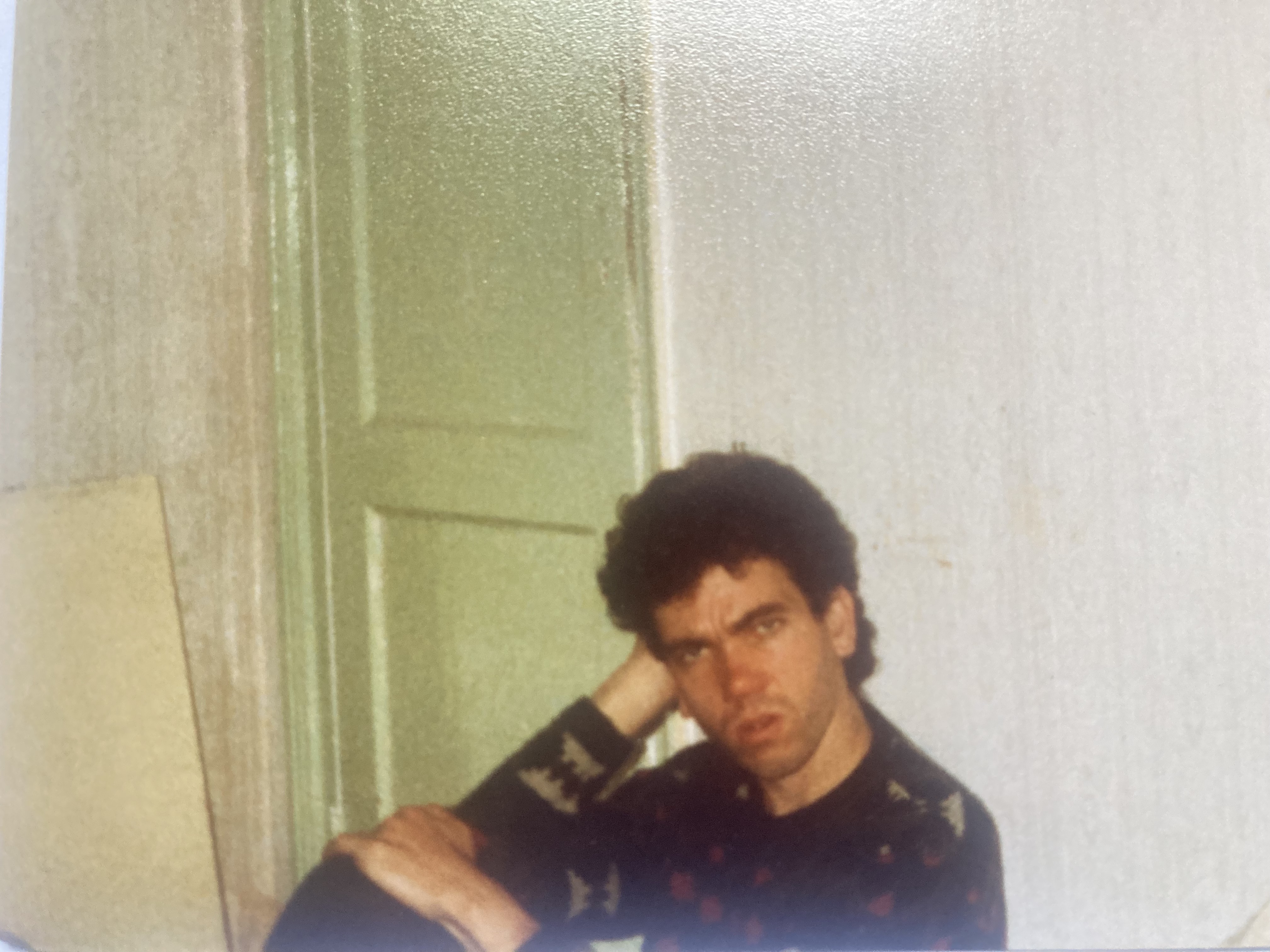
Revolutionary Spirit: A post-punk exorcism is probably on the shelves in your local bookstore in the ‘Rock Memoir’ section but this is not a rock memoir. To call it that is to do it a disservice because — forgive me or don’t forgive me — the majority of ‘Rock Memoirs’ are landfill. For every good book — let’s say Patti Smith’s Just Kids; Bob Dylan’s Chronicles Vol 1; Viv Albertine’s Clothes Clothes Clothes Music Music Music Boys Boys Boys; Ian Hunter’s Diary of a Rock ‘n’ Roll Star — there are ten memoirs that are just a waste of forest. Roger Daltrey’s Chronicles of a Tory Trout Farmer or whatever the hell it’s called springs horrifically to mind; Morrissey’s thing...and oh, I really can’t gather the strength to list any more.
This book then by Paul Simpson is a different creature and it is not a rock memoir. Paul calls it a post-punk exorcism, and it is that, but maybe it’s also a “savant’s charter” as Richard James Foster brilliantly describes it on the back cover. At one point in the book Paul describes Dali’s autobiography The Secret Life of Salvador Dali as “a magical seed blowing into a suburban garden (that plants) itself deep in my consciousness and blossoms into abstract thought.” And perhaps that’s also what this book is? Perhaps, in that sense it’s the memoir equivalent of those incandescent records and artists I’ve already mentioned and who Paul writes about: Simon Dupree, Television, the Pop Group, Peter Hammill, Be Bop Deluxe, Roxy Music. When we were young and we haunted Liverpool’s Atticus Books and Probe Records. We were looking for poetic and sonic electricity, alchemy and magic: books and records like solar flares. This is what this book is. This book is a solar flare.
Deyes Lane Secondary Modern school in Maghull either didn’t bother trying to give us an education or we just didn’t bother listening. People tell me it’s a good school these days but in those late 60s, early 70s years it was a miserable place where teachers who were dead behind the eyes did everything they could to crush our souls. Their attempts to bully us into submission clearly had the opposite effect because Deyes Lane produced two members of Echo and the Bunnymen, a Teardrop Explodes who became a Wild Swan — and me.
Years after leaving that educational landfill site it dawned on me that the sadists who taught us were ex-military men, traumatized, hollow shells intent on passing onto us their own brutalization. They were damaged souls and, consciously or not, they wanted us to be as messed up as they were.
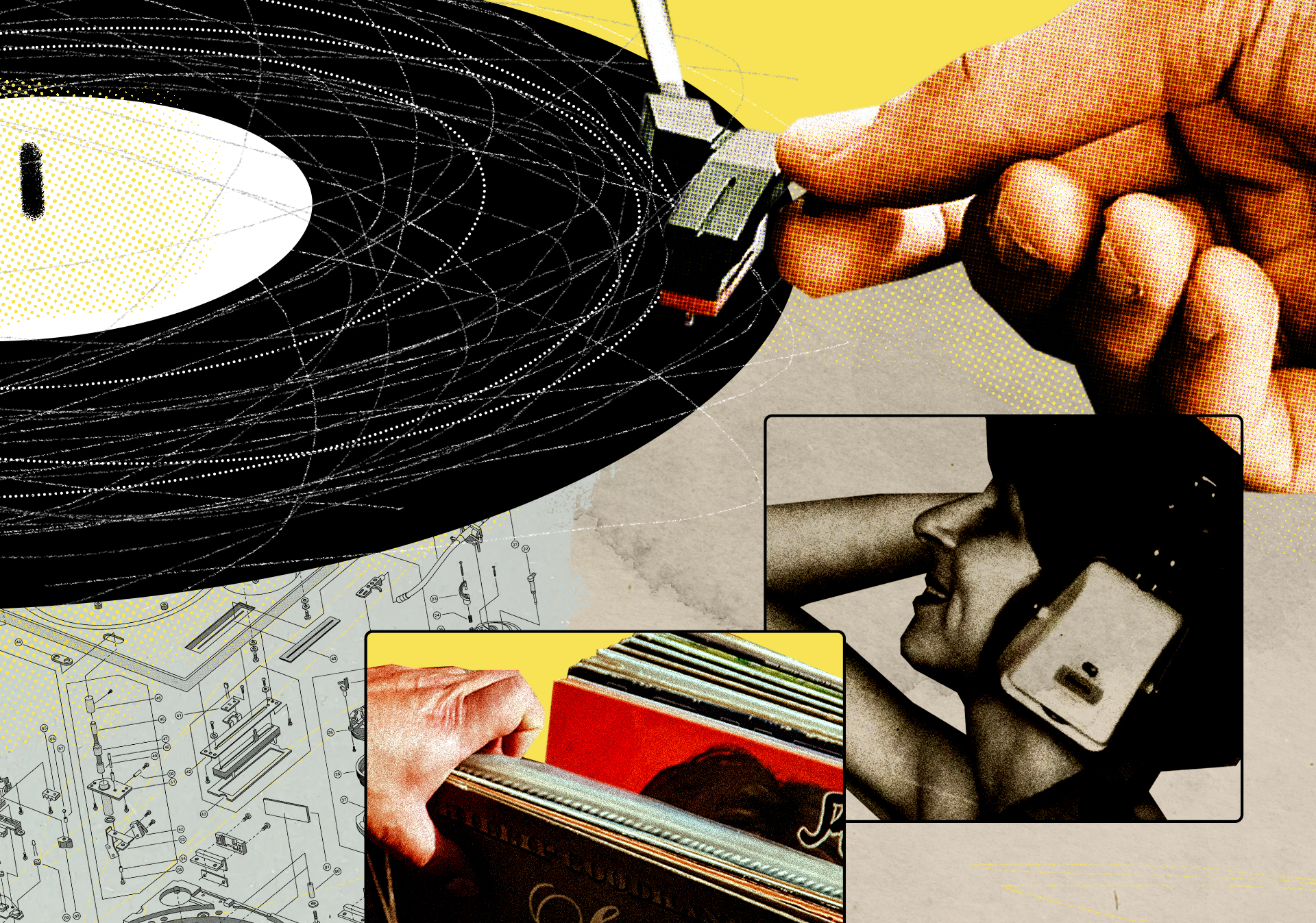
Although he now lives in Glasgow and London, Liverpool is ingrained in Paul Simpson’s soul. The city is part of the haunted weather of his book, albeit a particular time and place in a Liverpool that no longer exists. A city of cheap rents and cellar clubs, cafes rammed with back of envelope poets and songwriters huddled over teapots planning cultural revolutions, bedsit dreamers, art school drop outs, beat generation revenants, mythmakers. Big school fucked us up and that’s a blessing. We attend the savant’s polytechnic of bookstores and record shops, punk clubs and alehouses, film screenings, second hand clothes shops, samizdat Xerox mags. As Paul tells us in the book, when Patti Smith mentions Arthur Rimbaud and Gerard Nerval you make a note of their names: “Clearly, I’m not, but right now I feel like the only kid in England even aware of this alien culture.”
This is the way it works, the autodidact’s charter. There are secret codes in The Modern Lovers’ song, ‘Astral Plane’. 45 records contain underground information. Una Baines’s keyboard lines are morse code instructions to revolt. When Howard Devoto mentions Samuel Beckett in an interview you take down your unread copy of Murphy from your bedroom shelf and read it in one sitting. Tom Verlaine’s very name sends you off to Atticus Books in search of Symbolist poetry. Vic Godard’s name confirms your belief that French New Wave movies contain the keys to the mysteries of existence. I swear I based a decade of my life on the hidden instructions in Patti Smith’s “Piss Factory”.
It’s there — this subterranean realm — as a subtext in three films Grant McPhee is making about Liverpool’s 60s, 70s, 80s cultural underground — The Revolutionary Spirit, The Pool of Life, and Caged/Uncaged. Without necessarily knowing why, certain people are drifting towards certain places in search of a certain something. Mycorrhizal networks, airborne spores. The poet and dream merchant Peter O’Halligan takes over an empty fruit warehouse and pretty soon the poets and painters, the misfits and freaks, the musicians who don’t yet know how to play their instruments, the magicians and renegades are gathering in the building and altering a small corner of the universe. Soon, Roger Eagle and his co-conspirators Pete Fulwell, Doreen Allen and Ken Testi are further up the Mathew Street ley line and Eric’s is like a North Star in a cellar, attracting beautiful moths.
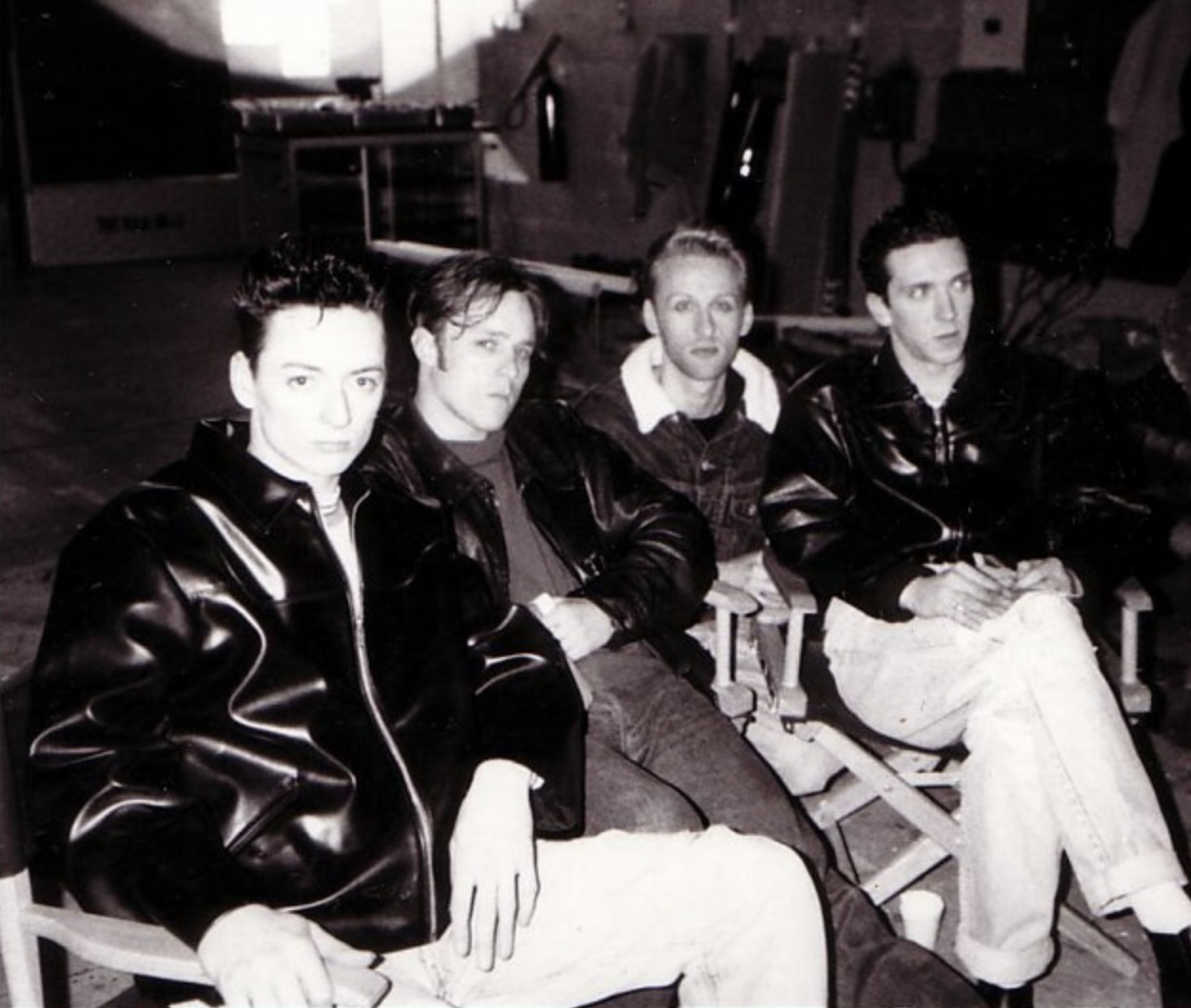
The ley lines run beneath the city’s cobbles. Word-of-mouth rumour, lipstick traces, Chinese whispers. You assemble a version of yourself from talisman, ephemera and artefact. Prince Far I adjusts the dial on your soul. Being deaf for three days after the Talking Heads and Ramones gig at Eric’s is a badge of honour. “Little Johnny Jewel” becomes a sacred relic, transmitting dissident energy. You can track this happening to Paul Simpson through the pages of his book. He is assembling himself from subcultural materials, from paperbacks and 45s, underground medicine, encounters in Eric’s girl’s toilets, and dead men’s suits. When he’s trudging the city streets with Julian Cope in search of a scene, he doesn’t yet know that they are the scene. A city needs a scene.
The great thing about that Liverpool scene in the 70s and 80s was that it came out of shit schools and the dole, out of record shops and book shops and secondhand clothes stores and bedsits. The margins are important, the shadows. The Revolutionary Spirit comes from the underground republic of dives and disobedience. From the unauthorized. Without a scene a city stagnates. With a scene a city is on fire.
Ever uncompromising, true to his wayward principles, Paul Simpson is the eternal truant, a delinquent and a dandy with a poet’s sensibility. In numerous collaborations, Paul and I would find ways of navigating the territory, circling the idea, looking for the atmosphere. It always has to have a certain light, an altered state, a luminosity or phosphorescence. You don’t know what it is until you make the chance discovery, find the incendiary element. Alchemy.
It’s probably a bit late but I’ll say this anyway — Full Disclosure time. Paul Simpson is one of my closest friends which disqualifies me from writing an objective review of his book. So, this is not a review. Let’s call it a reflection. Over the years, usually on a Wednesday afternoon, Paul and I would sit in the pub, usually the Little Grapes on Roscoe Street. On these long afternoons, woozy on Diplomatico rum and one-skinner spliffs we would talk about the projects we were working on. Paul’s long gestating memoir was revealed to me in stories as we sipped our rums and rolled our spliffs. The seeds of his book are there in his spoken word piece, “The Coldest Winter for a Hundred Years”, his eulogy for his dear friend Pete de Freitas.
Paul’s belief in magic, perhaps inherited from his spiritualist mother, meant that these storytelling afternoons often had an air of the esoteric about them. A supernatural atmosphere. There was always laughter but in and around the laughter there was also — in memory at least — a miasmic, Doctor Strange-like, otherworldly swirl. When the time came to leave the pub and wend our way home, through the streets in drizzle and dusk, the city would feel, for a fleeting moment, like the Liverpool of those long gone, distant days. If you time travelled back to the early 80s, dosed on psilocybin, and went into Atticus Books I like to imagine you’d find Revolutionary Spirit there in a luminescent stack on the table: a book of psychic magic, a missive from the future.
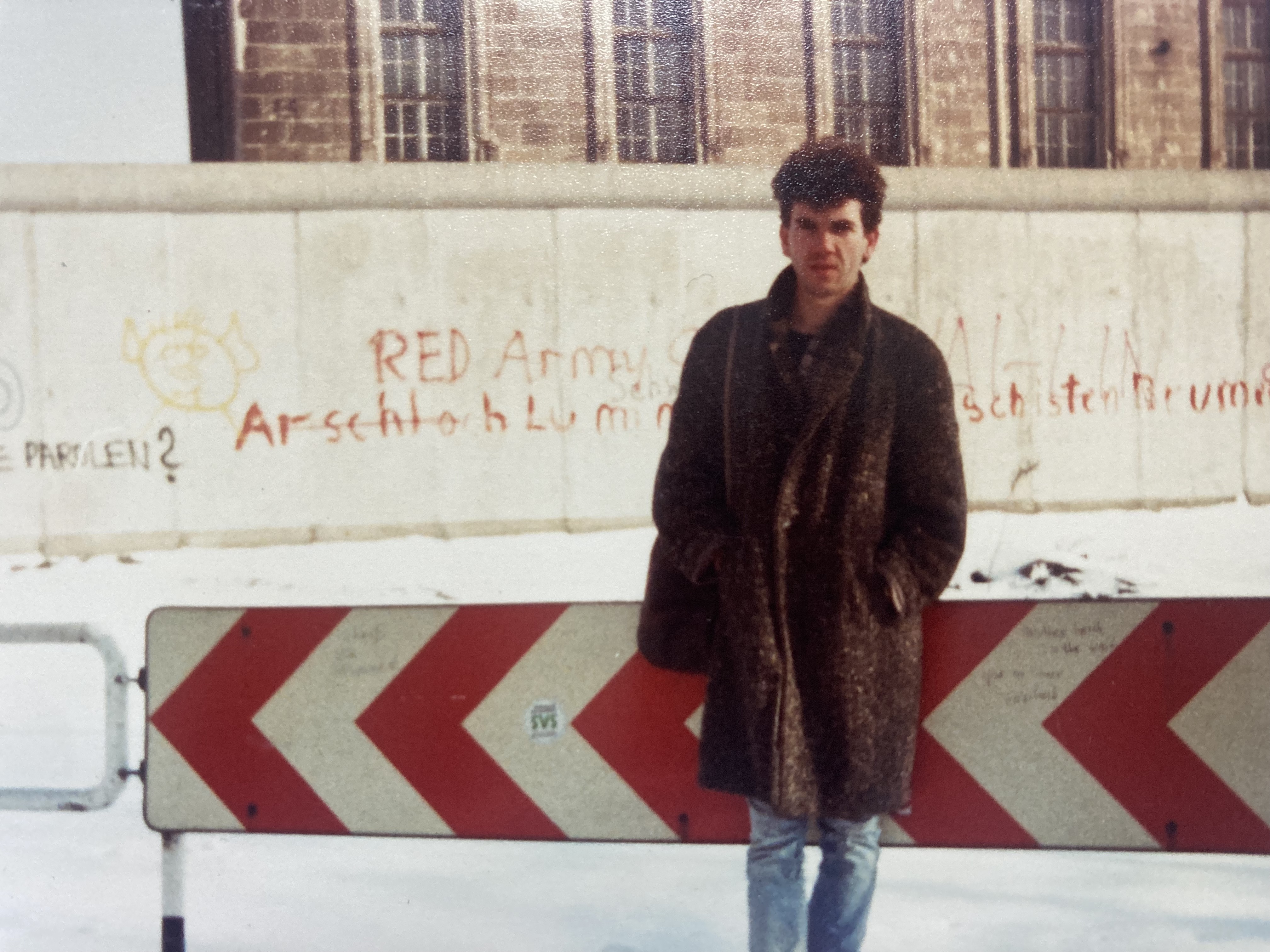
You open the book and begin to read. Sometimes you laugh out loud at the sheer madness of adventure. The colossal dose of magic mushrooms, cosmic cinematography playing across the inside of his eyelids; turning up for the ‘Reward’ promo video shoot dressed like Stanley Baker in Hell Drivers; debuting ‘Revolutionary Spirit’ at Plato’s Ballroom and thinking his voice sounds like Derek Nimmo in 60s sitcom All Gas and Gaiters; being compared to Marlene Dietrich; doped up on Sputnik laced with animal tranquiliser in the back of a Transit; the Giro dilemma of whether to spend the money on bread and toilet rolls or Patti Smith’s “Babel”. Glimpses into Mersey art poverty. And this is before we even get to Courtney Love and the demonic incubus invading his sleep on a burned-out mattress. When he meets his doppelganger in the Philippines and the man claims to be his brother it comes as no surprise.
Towards the end of the book in the “Dreaming Wicked” chapter, Paul tells the story of our residency in Bill Drummond’s Curfew Tower, fueled on Bushmill’s and Cuban cigars, fired and inspired by Pentangle, Mellow Candle and The Necks. In my upcoming memoir Wild Twin I wrote my own recollections of that strange time, saturated in Ulysses and Jose Donoso’s The Obscene Bird of Night:
“We sit like lighthouse keepers, pipe and cigar smoke in the air and peat on the fire. Paul tells stories of Silver Blades Ice Rink, the echo of pop music, the taste of girls’ lips. Terry Riley ‘Persian Surgery Dervishes’ pulsating in the writing room; open window, rain, the cacophony of Cushendall at dusk. Drunks roaring on Bridge Street, panic in the gutters. A boy like a bullfighter falls onto the bonnet of a boy racer’s motor. Blaring horns; a truck pulling a trailer on which, rope tied like Christ on a crucifix a filth covered, wild eyed man is howling, hair full of shit and ashes. We think we are witnessing some kind of ritual punishment, a pagan sacrifice. In bed I can feel my blood flowing through my neck, my heartbeat in the pillow. Malarial dreams, fevered agitation: and then a kind of half-death with car horns blaring in the broken night.
In the night a knife disappears.
Next day when we tell Zippy the Flesher about the scene we have witnessed, he explains it was a stag do.”
Revolutionary Spirit is a book about the glories and wonders of the margins, the magical peripheral, the future unscripted. You could describe Paul Simpson’s time in those outer reaches as ‘wilderness years.’ This would be to do the man and his vision a great disservice. The frontman of the Wild Swans is a lucid dreamer. As he says in the final pages, he is possessed of “a creative Dalinian, Blakean, John Cowper Powys, Richard Dadd kind of shallow madness.” Often quoting the instructions on old milk cartons to “Fold back wings to full extent”, Paul Simpson is a Revolutionary Spirit. If you read this book you will get a glimpse of the enormous possibilities and potential of being overlooked.

Comments
Latest
Cuts, care and council tax hikes: how the city is balancing its books
A postcard from Colwyn Bay
Fountains, Ffrith and turning the place over
Just what is happening with Peak Cluster’s CO₂ pipeline?
'It comes from the underground republic of dives and disobedience'
Jeff Young on Paul Simpson's 'revolutionary spirit'